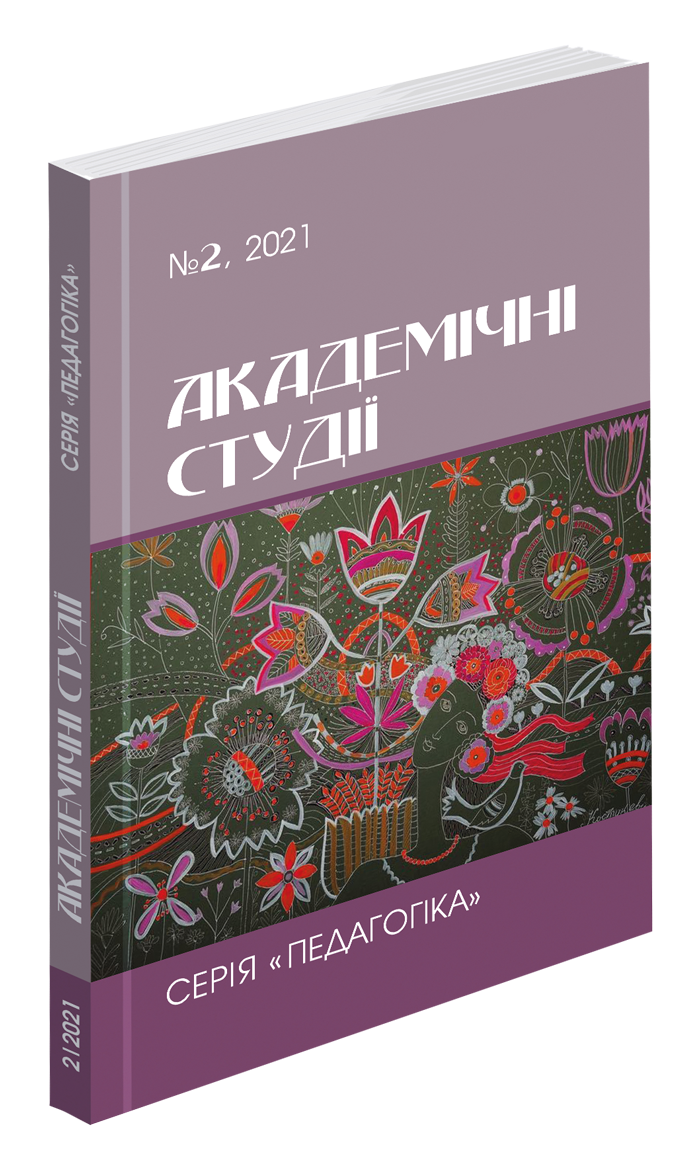Abstract
Nowadays the Ukrainian society demands that a specialist of the New Ukrainian School should be prepared to perform their professional functions effectively and fully participate in all spheres of life. This article highlights the topical issues of organizing the educational process in higher educational establishments in Ukraine, namely the formation of general and professional competencies of primary school teachers in accordance with regulations: the law of Ukraine "On Education", professional standard for professions "Primary school teacher in the establishment of general secondary education", "Primary education teacher (with a diploma of junior specialist)". This article presents the analysis of the implementation the project-based technology in the educational process of Pedagogical College as an effective means of students’ personal and social development during the classes from different disciplines, students’ self-work as well as during the aprobation and undergraduate practice. The paper provides an overview of the implementation of project-based technology in the process of blended learning a foreign language to achieve the main goals of language learning by future teachers, which involves effective communication in oral and written forms, language use as a means of intercultural communication, the ability to use language as a tool in the cultural dialogue in the modern world. The authors substantiate the didactic potential of interactive teaching methods, in particular the project-based technology, as a component of the system of the formation of the communicative competence in the process of learning English. The analysis and the generalization of the foreign language instructors experience in Lutsk Pedagogical College are done taking as an example the process of organizing the educational process implementing interdisciplinary practiceoriented long-term project "Lina Kostenko. The poetess above an epoch", which involved the students from the Primary Education department with the additional qualification “English language teacher in primary school”. The effectiveness of the project-based technology in the system of formation the general and professional competencies of students of higher educational institutions of Ukraine, as well as communicative competence in particular is proved in this article.
References
Aini, 2020 Aini, D.F.N. (2020). Pengembangan Pedoman EModul Berorientasi Student Active Learning Sebagai Pendukung Pembelajaran di Sekolah Dasar. Jurnal Pendidikan Dasar Nusantara, 5(2), 292-304
R. Bart, T. Olney, M. Nichols, Ch. Herodotou. (2020) Effective usage of learning analytics: what do practitioners want and where should distance learning institutions be going? Open Learning: The Journal of Open, Distance and e-Learning 35:2, pages 178-195.
Evtukh M.B., Serdiuk A.P. Social pedagogy: a course book. K.: MAUP, 2002. 232 p. refs.: p. 221-226.
Kolbrun Friðriksdóttir. (2019) The effect of tutor-specific and other motivational factors on student retention on Icelandic Online. Computer Assisted Language Learning 0:0, pages 1-22.
Graham, C.R. (2007). Blended learning systems: Definition, current trends and future directions. Handbook of blended learning: Global Perspective, local designs (pp. 3-21). San Francisco, CA: Pfeiffer Publishing.
Holloway & Gouthro, 2020 Holloway, S.M., & Gouthro, P.A. (2020). Using a multiliteracies approach to foster critical and creative pedagogies for adult learners. Journal of Adult and Continuing Education
Hrastinski, S., (2019). What do we mean by blended learning? Technology Trends Washington, 63(5), 564-569.
S. V. Ivanova, L. S. Pastukhova: The possibilities of using the project method in education and work with young people at the present time The Education and science journal 20(6): 29-49, July 2018
Zelenko, A.S. On the formation of semasiology in philosophical and psychological understanding: status and prospects: monograph. Lugansk: Alma Mater, 2005. 199 p.
